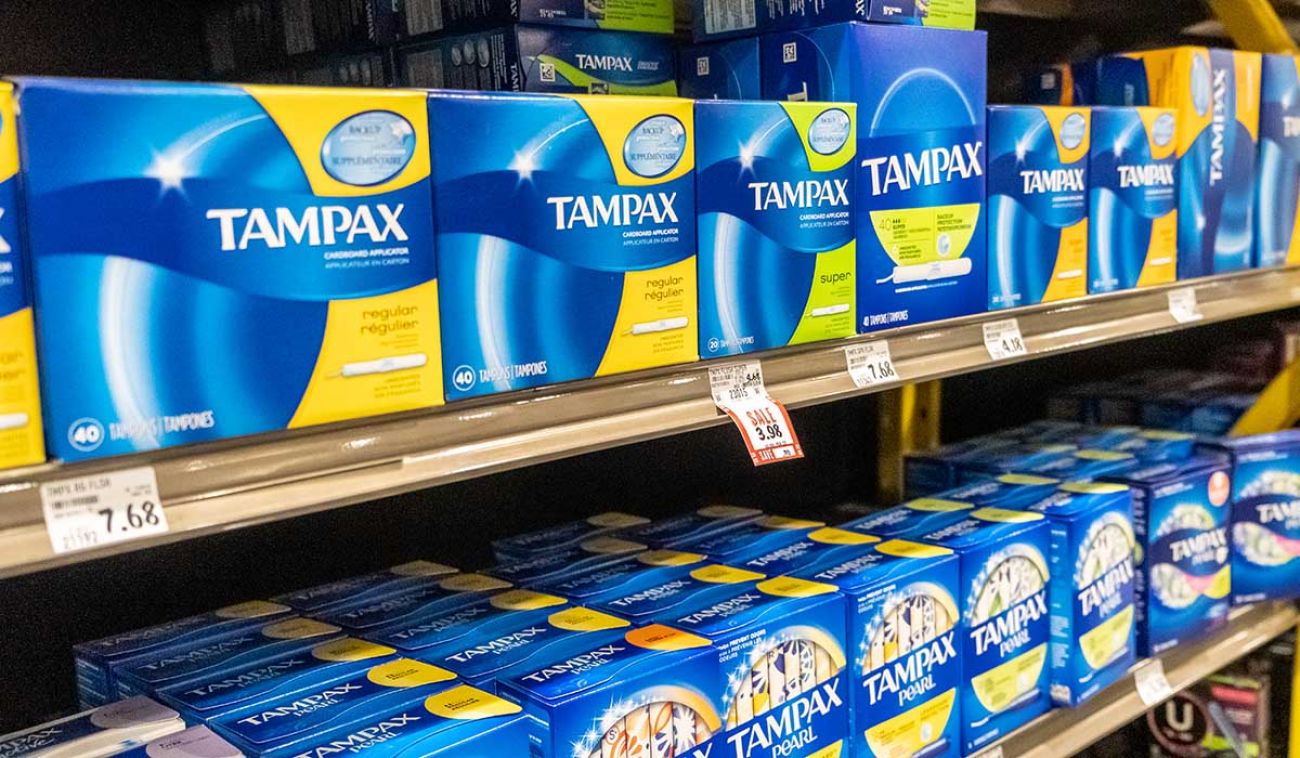GOP, Democrats agree: Time to end Michigan’s $7 million tampon tax

LANSING — Michigan women and their families would no longer have to pay sales tax on tampons and other feminine hygiene products under bipartisan legislation heading to Gov. Gretchen Whitmer.
The Michigan Senate on Tuesday approved a two-bill package to repeal the so-called tampon tax, one of the final steps in an effort that began more than five years ago with the introduction of similar legislation that had repeatedly stalled.
"I've been talking with legislators about this for several years, and it's good to finally see it get sort of that critical mass of interest," sponsoring Sen. Winnie Brinks, D-Grand Rapids, told Bridge MIchigan after her legislation passed in a 32-2 vote.
Related:
- Michigan’s ‘tampon tax’ challenged in new lawsuit
- Are tampons as essential as toilet paper? Menstruation goes mainstream
"The bottom line is, this saves women money, but of course it also saves households money, because we're all part of living together."
Michigan exempts medical supplies (but not over-the-counter drugs) from its 6 percent sales tax. But it’s long treated tampons and similar products as “luxury” goods. The state collects about $7 million in tampon taxes each year, according to nonpartisan fiscal agencies.
But far from a luxury, tampons are "essential items" necessary for the health and wellbeing of women, Dr. Nita Kulkarni, a Flint obstetrician with the Michigan State Medical Society, told lawmakers in recent committee testimony as she urged passage of the bills.
So-called tampon taxes can be especially burdensome on lower-income women forced to choose between menstrual supplies or other necessities, Kulkarni said. Without affordable access, some women may rely on "unsanitary" products that can be "incredibly dangerous.”
The average woman may spend $4,800 or more on menstrual products over a lifetime, which would include about $288 in state sales tax, according to the American Association of University Women of Michigan, which supports the legislation.
The Senate on Tuesday also approved a companion bill by Rep. Brain `Posthumus, R-Cannon Township. The House has already approved nearly identical legislation sponsored by Rep. Tenisha Yancey, D-Harper Woods, but will need to vote again on the Brinks version before it reaches Whitmer, who is expected to sign the legislation.
Officials around the country have pushed to eliminate tampon taxes in recent years.
Since Michigan lawmakers first proposed the idea in 2016, eight states have exempted tampons and similar products from sales tax, according to a House Fiscal Agency analysis. As of February, Michigan was one of 30 states taxed tampon sales.
Previous proposals to exempt feminine hygiene products in Michigan have stalled for several reasons, including the implications for schools and local governments, which both receive a share of state sales tax revenue.
The new legislation seeks to protect education funding by shifting an equivalent amount of state general fund revenue to the School Aid Fund each year. But it would not replace funding for local governments, who are projected to collectively lose at least $600,000 in constitutional revenue sharing payments each year if Whitmer signs the bill into law. (That’s less than 1 percent of the $912 million that local governments are set to receive this year.)
The tampon tax legislation won broad backing in the Michigan Legislature but has been overshadowed by a series of partisan debates.
The Senate took up the repeal bills on Tuesday moments after majority Republicans advanced a package to limit school mask and COVID-19 vaccine policies. The House voted on the tax bills two weeks ago after approving controversial GOP legislation to tighten voting rules.
But unlike those politically charged topics, the tampon tax repeal “is not a partisan issue,” Posthumus said earlier this month before the House vote.
“This is not even a gender issue. This is about cutting taxes for families throughout this state.”
See what new members are saying about why they donated to Bridge Michigan:
- “In order for this information to be accurate and unbiased it must be underwritten by its readers, not by special interests.” - Larry S.
- “Not many other media sources report on the topics Bridge does.” - Susan B.
- “Your journalism is outstanding and rare these days.” - Mark S.
If you want to ensure the future of nonpartisan, nonprofit Michigan journalism, please become a member today. You, too, will be asked why you donated and maybe we'll feature your quote next time!




